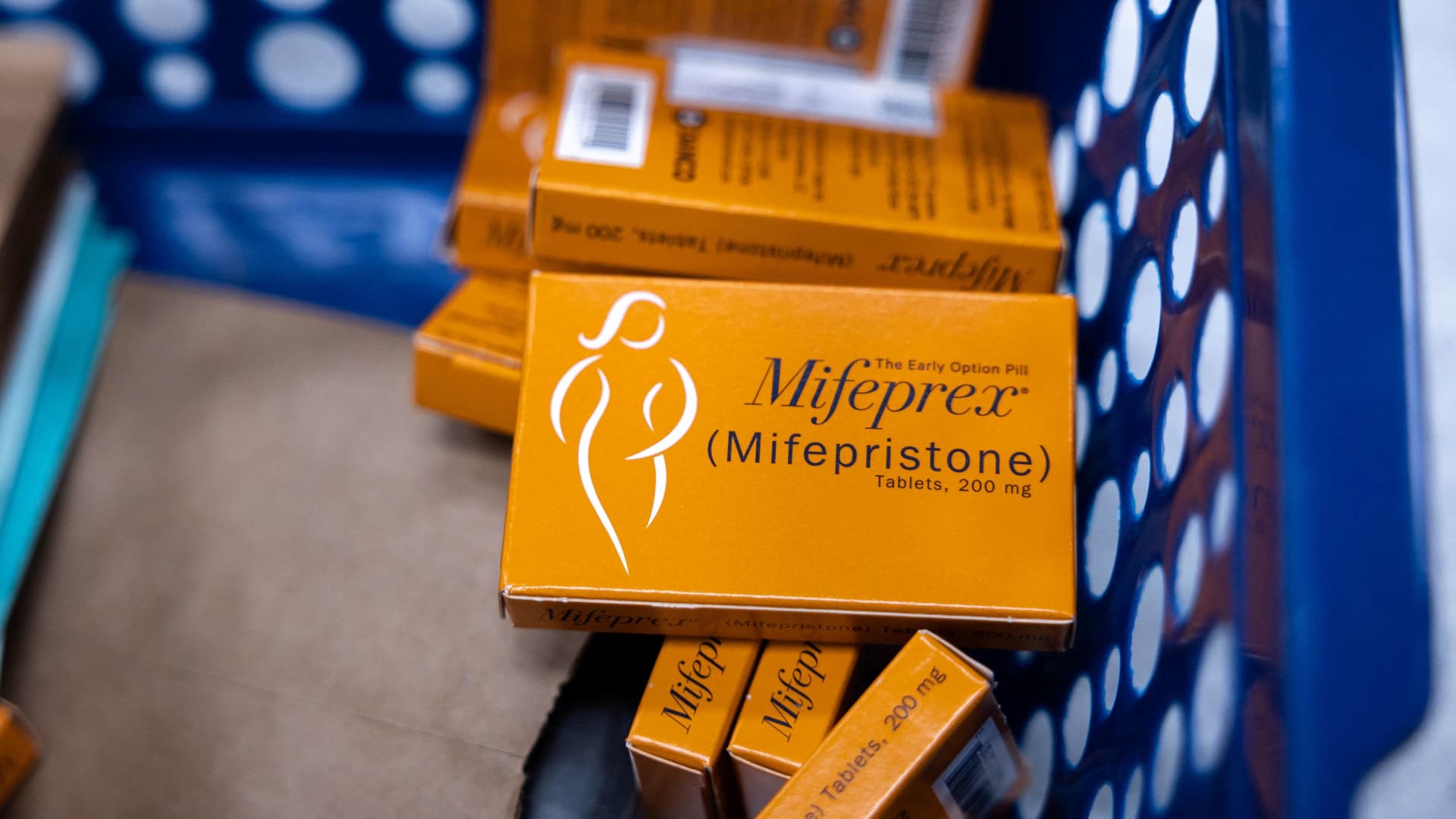
Boxes of the medication Mifepristone used to induce a medical abortion are prepared for patients at Planned Parenthood health center in Birmingham, Alabama, March 14, 2022.
Evelyn Hockstein | Reuters
The abortion pill is the most common method to terminate a pregnancy in the U.S., according to the Centers for Disease Control and Prevention.
The CDC, in a report published Wednesday, found that about 51% of abortions in 2020 were performed with the pill at or before the ninth week of pregnancy. From 2019 to 2020, abortions with the pill increased 22%, according to the report.
The pill, mifepristone, has become a flashpoint in the battle over reproductive rights in the wake of the Supreme Court’s decision to abolish federal abortion rights in June. Twelve states have outlawed abortion since then, but banning the pill is difficult because it has become easier to obtain.
In response to the Covid-19 pandemic, the Food and Drug Administration suspended a requirement that women obtain mifepristone in person, allowing them to receive the pill by mail and at retail pharmacies. The drug agency announced in December 2021 that it would make this change permanent.
Anti-abortion groups last week asked a federal court in Texas to overturn the FDA’s more than two-decade-old approval of mifepristone. The groups’ attorneys are from the Alliance Defending Freedom, an organization involved in the Dobbs v. Jackson Women’s Health Organization case that led the Supreme Court to overturn Roe v. Wade.
Sen. Elizabeth Warren, D-Mass., and eight other senators asked the FDA in a letter last week to to expand access to mifepristone by approving its use for miscarriage management. This would improve women’s access to the pill in states that are restricting access, the senators wrote.
The FDA has approved mifepristone in combination with the tablet misoprostol as a method to terminate pregnancies before the 10th week. Mifepristone prevents the pregnancy from continuing and misoprostol causes contractions that empty the uterus. The method is 96% to 98% effective at ending early pregnancies.
The abortion pill has become an increasingly common way to end a pregnancy in the U.S. Abortions with the pill increased 154% from 2011 to 2020, according to CDC data.
More than 620,000 abortions were performed in the U.S. in 2020, a 15% decrease since 2011. Almost all abortions, 93%, are performed at or before the 13th week of pregnancy, and 80% are done at or before the ninth week, according to the CDC data.
Surgical abortions are the second most common method to end a pregnancy. About 40% of all abortions were performed with surgical procedures at or before that 13th week of pregnancy, according to the CDC.







